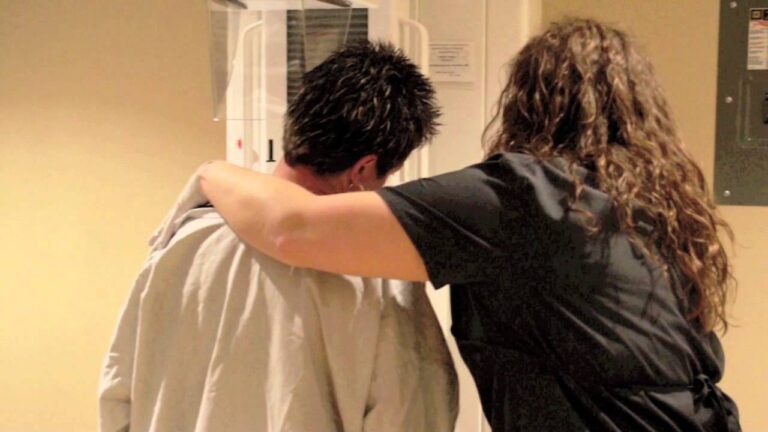Junior Station Master: Job Description & Salary

Junior Station Master Job Description Template
Junior Station Master Job Description A Junior Station Master is an entry-level position in the railway industry that plays a crucial role in ensuring the smooth operation of a train station. They are responsible for assisting the Station Master in various administrative and operational tasks. One of the key responsibilities of a Junior Station Master is to manage the ticketing operations. This includes selling tickets to passengers, handling cash transactions, and maintaining accurate records of ticket sales. They also assist passengers in understanding fare structures, train schedules, and platform information. Another important duty of a Junior Station Master is to monitor the movement of trains. They coordinate with train operators to ensure that trains arrive and depart on time. They also communicate any delays or disruptions to passengers, providing them with alternative travel options if necessary. In addition to these tasks, a Junior Station Master is responsible for overseeing the cleanliness and maintenance of the station premises. They ensure that the waiting areas, platforms, and restrooms are clean and well-maintained. They also coordinate with the cleaning staff to address any cleanliness issues promptly. Effective communication skills are essential for a Junior Station Master as they interact with a diverse range of people, including passengers, train operators, and staff members. They should be able to handle customer complaints and inquiries professionally and resolve them in a timely manner. Overall, a Junior Station Master plays a vital role in ensuring the safety, efficiency, and customer satisfaction of train station operations. Their attention to detail, multitasking abilities, and strong interpersonal skills make them an important asset to the railway industry.Junior Station Master Responsibilities
Junior Station Master Requirements
How Much Does A Junior Station Master Make?
Junior Station Master Salary
| Country | Salary Range |
|---|---|
| United States | $35,000 – $55,000 per year |
| United Kingdom | £20,000 – £30,000 per year |
| Australia | AUD 50,000 – AUD 60,000 per year |
| Canada | CAD 40,000 – CAD 50,000 per year |
| Germany | €30,000 – €40,000 per year |
A Junior Station Master is an entry-level position in the railway industry responsible for assisting in the management and operations of a train station. They ensure the smooth functioning of the station by coordinating with station personnel, managing passenger flow, and monitoring train schedules.
The salary of a Junior Station Master varies depending on the country and the specific railway company. In the United States, the salary range is typically between $35,000 and $55,000 per year. In the United Kingdom, it ranges from £20,000 to £30,000 per year. In Australia, the range is around AUD 50,000 to AUD 60,000 per year. In Canada, it is between CAD 40,000 and CAD 50,000 per year. In Germany, the salary range is approximately €30,000 to €40,000 per year.
It’s important to note that these salary ranges are approximate and can vary based on factors such as experience, location, and the size of the railway company. Additionally, there may be opportunities for career growth and higher salaries as one gains more experience and takes on more responsibilities in the field of railway station management.
Junior Station Master Salaries by Country
Top Paying Countries for Junior Station Master
| Country | Average Salary |
|---|---|
| United States | $60,000 |
| Switzerland | $55,000 |
| Australia | $50,000 |
| Germany | $45,000 |
| Canada | $40,000 |
Below is a table showcasing the top paying countries for Junior Station Masters. The average salaries mentioned are approximate figures. The United States offers the highest average salary of $60,000, followed by Switzerland with $55,000. Australia, Germany, and Canada also pay relatively high salaries to Junior Station Masters, with average figures of $50,000, $45,000, and $40,000 respectively. These figures may vary based on factors such as experience, location, and company policies. It is important to note that salaries mentioned are subject to change and may not reflect the current market conditions.
A video on the topic Junior Station Master
Video Source : KR EDUCATION HUBInterview Questions for Junior Station Master
1. What are the main responsibilities of a Junior Station Master?
A Junior Station Master is responsible for overseeing the operations at a railway station, ensuring the safety and efficiency of train movements, coordinating with other staff members, and providing assistance to passengers.
2. What skills and qualifications are required for this role?
To become a Junior Station Master, one should have good communication and organizational skills, problem-solving abilities, knowledge of railway operations, and the ability to handle stressful situations. A bachelor’s degree in a relevant field is preferred.
3. How do you ensure the safety of train movements as a Junior Station Master?
As a Junior Station Master, I ensure the safety of train movements by implementing and following strict operating procedures, coordinating with train drivers and other staff members, monitoring signaling systems, and conducting regular safety inspections.
4. How do you handle difficult or angry passengers?
When dealing with difficult or angry passengers, I remain calm and listen to their concerns. I try to empathize with them and provide them with the necessary information or assistance to resolve their issues. If needed, I involve senior staff members to handle the situation.
5. How do you manage the coordination between different departments at the station?
I ensure smooth coordination between different departments by maintaining effective communication channels, conducting regular meetings with department heads, and sharing information regarding train schedules, maintenance activities, and any other relevant updates. This helps in efficient station operations.
6. How do you handle emergencies or disruptions in train services?
In case of emergencies or disruptions in train services, I follow the established emergency procedures, coordinate with relevant authorities, and communicate the situation to passengers through announcements. I also provide necessary assistance and alternative travel options to affected passengers.
7. How do you ensure the cleanliness and maintenance of the station premises?
I ensure cleanliness and maintenance of the station premises by regularly inspecting the area, coordinating with housekeeping staff, implementing waste management systems, and addressing any repair or maintenance issues promptly.
8. How would you handle a situation where a train is delayed or canceled?
If a train is delayed or canceled, I would communicate the information to passengers through announcements, display boards, and online platforms. I would also provide alternative travel options, assist passengers in rescheduling their journeys, and keep them informed about the latest updates.
9. How do you ensure the proper functioning of ticketing systems?
To ensure the proper functioning of ticketing systems, I regularly monitor and maintain ticketing machines, coordinate with the ticketing department to resolve any technical issues, conduct audits to prevent fraudulent activities, and provide training to staff members on ticketing procedures.
10. How do you handle situations where there is overcrowding or congestion at the station?
If there is overcrowding or congestion at the station, I take immediate action by coordinating with security personnel to manage crowd control, directing passengers to less crowded areas, and providing clear instructions and guidance to ensure the safety and comfort of all passengers.






